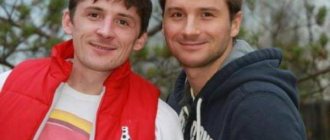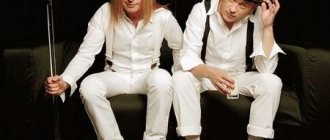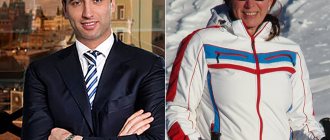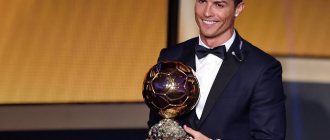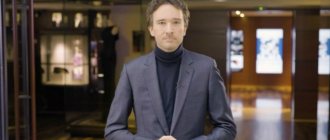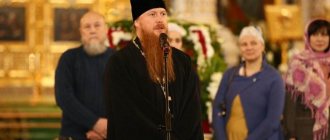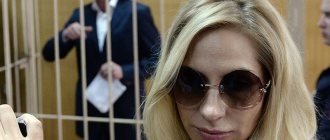Biography of Viktor Vekselberg
Viktor Feliksovich Vekselberg is an entrepreneur, head of the Skolkovo Foundation, one of the founders and chairman of the supervisory board of Renova Group of Companies, billionaire.
Vekselberg Viktor Feliksovich
In the global ranking of the world's rich, published by American Forbes on March 1, 2020, the investor and financial magnate took 98th place, that is, he entered the top hundred of the world's wealthiest Russians. According to the publication, his fortune in 2020 decreased by 3.7 billion dollars and amounted to ten and a half billion. For comparison, in 2012 the magazine estimated his wealth at $18 billion, and he topped the list of domestic billionaires.
"Neftyanka"
Viktor Vekselberg's oil business is associated with the name TNK - Tyumen Oil Company. In total, in the early 1990s, it included 10 enterprises: mining, refining, oil supply and others. Entry into the industry began with the purchase, founded by Alfa Group and Renova, of a 40% stake in TNK. The shares were purchased at a price five times higher than their actual value, namely, for 25 million dollars. The state never received most of this money, which subsequently became the reason for an investigation by the Accounts Chamber and the initiation of a criminal case under the article “fraud.” However, the case was soon closed, as New Holding ceased to exist.
From 1997 to 2002, Vekselberg, as a member of the Board of Directors of TNK and its divisions, held various management positions, and in April 2002 he was appointed Chairman of the Board of TNK. By this time, Alpha and Renova already controlled 99.9% of TNK shares. Planning to increase their assets by acquiring new oil enterprises, the owners pursued a strict expansion policy, buying out shares of major players in the oil industry: SIDANKO, Slavneft and others.
On September 1, 2003, AAP (Alfa/Access/Renova) entered into a strategically important agreement with British Petroleum (BP), a large international oil company. The parties agreed to cooperate and combine assets in Russia and Ukraine. The TNK-BP holding took third place in terms of oil reserves and production volumes in the world. AAR and BP owned equal stakes in the company (50% each), of which 12.5% belonged to Viktor Vekselberg and the same amount to Leonard Blavatnik. Vekselberg took the position of executive director and joined the Board of Directors of TNK-BP.
Negotiations are currently underway on the purchase of TNK-BP by Rosneft through two separate transactions: the repurchase of shares in BP and AAR. In October 2012, the deal entered into its final stage, after which it is expected that Rosneft will become the world's largest oil company.
Childhood and family of Viktor Vekselberg
The future oligarch was born on April 14, 1957 in the Ukrainian city of Drohobych in Western Ukraine. There they had a lot of friendly and “hospitable” Ukrainian relatives on their mother’s side (grandmothers, grandfathers, uncles, aunts, cousins), but there was a complete absence of their father’s relatives, all of them died during the Second World War.
Viktor Vekselberg comes from a Jewish family
The fact is that the businessman’s hometown is located close to the state border. Therefore, before its capture by the Nazis in 1941, almost none of the residents had time to leave. The occupation authorities enumerated the local Jews (there were 15 thousand of them) and before leaving in 1944 they shot everyone. Among the victims of the brutal massacre were 18 members of Victor’s family.
At school, the teenager was an excellent student, an active participant in public life, and secretary of the Komsomol organization. But, as the businessman later noted, despite this and the fact that upon receiving his passport his nationality was registered as Russian, he was not given a medal for successfully completing school - because of his specific surname.
Viktor Vekselberg in his youth
The young man dreamed of Moscow State University. In high school, he studied at the correspondence school of the Faculty of Mechanics and Mathematics of this university - he prepared for admission by solving assignments sent by mail. But his acquaintances, including the son of friends of his parents, a student at the Moscow Institute of Transport Engineers with the same characteristic surname Werner, did not advise him to try to enroll in Moscow State University, MEPhI or Physics and Technology.
After listening to his older comrades, the young man became a student at the Faculty of Automation and Computer Science at MIIT. He received an “A” in written and oral mathematics at the entrance exams, and a “C” in essay due to the presence of Ukrainianisms in his speech and writing.
In the hostel, Vitya lived in the same room with the mentioned fellow countryman Werner. And there, next door, lived his future business partner Leonid Blavatnik, who later, after receiving American citizenship, became Leonard. They studied in the same stream, but in different groups, played football together, went to theaters and concerts. Viktor Feliksovich maintained friendly relations with other institute friends: classmate Volodya Kremer, Alexander Abramov, and Evgeniy Olkhovik, 2 years older.
The beginning of the career of Viktor Vekselberg
In 1979, the young man graduated from the university with honors. During the distribution, he again, according to him, faced a restriction on the admission of Jews. As an excellent student, Vekselberg had the right to first choice of work, but three times, when his name was mentioned, he was refused by employers.
Businessman Viktor Vekselberg
As a result, he was forced to ask the dean to give him a “free” diploma, and got a job again through friends. A boss named Lyamts agreed to hire him in a design bureau where pumps for oil production were created.
While developing the designs of pumps and software for them, the young specialist traveled to oil fields and did not even imagine that he would soon become the owner of some of them.
By 1990, he defended his dissertation and also acted as the founder of several (from the Vekselberg Company), specializing in the export of non-ferrous metals. In particular, he sold five thousand tons of aluminum from the Irkutsk Aluminum Plant (AZ) in the USA and opened its representative office in New York. There he met his neighbor Blavatnik, who emigrated in 1978 and became a wealthy US citizen. Together with an old friend, he founded the Russian-American Joint Venture Renova.
Viktor Vekselberg made money from selling non-ferrous metals abroad
Later, in addition to the Irkutsk AZ, they received control of the shares of the Ural AZ, which was facilitated by Vaxelberg’s friendly relations with the governor of Sverdlovsk Eduard Rossel. These enterprises were united into the Siberian-Ural Aluminum Company, headed by Viktor Feliksovich.
In 1998, the businessman expanded his scope of activity. In partnership with Alfa Group, Renova acquired the Tyumen Oil Company. Subsequently, through a merger, they created TNK-BP, which became one of the largest in the world in terms of oil production.
Viktor Vekselberg: Russia does not use its enormous potential Vikselberg was also involved in the development of gas, energy, finance, mechanical engineering, real estate, IT and many others.
“Our American cousin”: what Vekselberg risks losing in the USA
Viktor Vekselberg and his Renova turned out to be the most unexpected targets of the latest US sanctions. RBC figured out what Vekselberg has in the United States and what damage sanctions could cause to his interests in the West
Viktor Vekselberg (Photo: Alexey Danichev / RIA Novosti)
One among strangers
The main surprise of the new US sanctions against Russia, announced on April 6, was the inclusion in them of the owner of the Renova group, Viktor Vekselberg, perhaps the most loyal Russian “oligarch” to the American establishment with extensive connections and interests in the West. In 2005, an American court called Vekselberg a “permanent resident of the United States.” And last year, it was Vekselberg who told Vladimir Putin at the St. Petersburg Economic Forum about how the Russia-US business dialogue is going, and on behalf of American and Russian business he expressed hope for the development of economic relations.
But when the name VEKSELBERG, Viktor Feliksovich appeared on the SDN sanctions list, everything changed for him in an instant: entry into the United States was closed (the businessman was a frequent visitor there), assets in America were subject to freezing, the Swiss ]stopped[/anchor] paying him dividends, and even Russian counterparties began to refuse transactions.
“The sanctions against Vekselberg came as a surprise to everyone. They don't make any sense. In general, Vekselberg has a good reputation in all respects, and he is not perceived as particularly close to Putin,” Anders Aslund, a Swedish economist and expert at the Washington Atlantic Council, told RBC. According to Oslund, he personally knows Vekselberg and “highly values” him.
Vekselberg has still not publicly commented on the sanctions against him, and the press received mainly only news about the troubles of Renova in Switzerland, where Vekselberg is counted among the residents and local billionaires. Nothing has been heard about the businessman’s assets in the United States. Meanwhile, in the USA, before the sanctions, Renova had an investment fund, Columbus Nova, which, at least until 2020, managed assets worth $15 billion (now the volume of assets is not disclosed on the fund’s website, and the Renova website said about $2 billion, but it is already does not work for two weeks). Vekselberg is closely connected with the United States not only through business interests, but also through cultural, educational and scientific projects, as well as family ties and family assets.
American cousins
The oligarch was not protected from sanctions by either close relatives in the United States or connections with prominent representatives of political, business and humanitarian circles in the United States and Europe. In America, Vekselberg has two cousins - Andrew and Jonathan Intrater. Andrew, a US citizen, heads Columbus Nova and has been a director at various times (for example, Akado and Integrated Energy Systems). Jonathan is the managing director of the investment company Ladenburg Thalmann and is not officially associated with Renova. The fact of their relationship with Vekselberg was disclosed only once in the materials of the US Securities and Exchange Commission (SEC) in 2007. The Intrater brothers did not respond to RBC's requests sent to them by email.
Although U.S. sanctions against Russians do not apply to relatives and U.S. citizens cannot be sanctioned, Intraters may face serious problems. “Vekselberg’s cousins are not allowed to have any dealings with him, since the sanctions prohibitions apply to all US citizens, regardless of the degree of relationship with the sanctioned persons. Liability is a fine of up to $250 thousand for each sanction violation in a civil case, up to $1 million and up to 20 years in prison in a criminal case,” explains Dentons partner Artem Zhavoronkov. Americans are prohibited from providing any services to a person on the sanctions list or receiving any services from such a person, although, “of course, Vekselberg can still, for example, call someone from the Intraters and ask about the weather for the coming weekend,” clarifies head of the French branch of the British consulting company Aperio Intelligence George Voloshin.
Due to the relationship with Vekselberg, Intrater counterparties will have to be more careful about transactions with them; It is possible that some of the counterparties will completely refrain from transactions with the brothers, just in case, says Zhavoronkov. There is a high probability that any significant transactions (significant transactions, a concept from the CAATSA sanctions law. - RBC) with Intraters will be regarded by their counterparties as indirectly promoting the interests of Vekselberg - such transactions may result in secondary sanctions for companies and citizens outside the United States (foreign persons) , adds Voloshin.
Columbus Nova's portfolio includes investments in application virtualization platform developer Frame, New York City gossip and news site Gawker, online marketplace Fiverr.com, music service Rhapsody, music label 300 Entertainment, video game developer Daybreak (formerly Sony Online Entertainment) , which is known for massively multiplayer games.
The Columbus Nova website states that Andrew Intrater has been the chief executive of Columbus Nova, “the US investment vehicle for the Renova group,” since 2000. However, on the website of the affiliated investment company Columbus Nova MB, the mention of “Renova” was recently removed from the information about Intrater (it remained in the Google cache). RBC sent a request to Columbus Nova MB.
Andrew also has his own asset in Russia - 35% in KN Media Partners LLC (KNMP), follows from the Unified State Register of Legal Entities. KNMP, which is not part of the Renova group, is one of the three co-owners of MTV Networks Vostok LLC, the parent Russian structure of the American media group Viacom. MTV Networks Vostok, through its controlled structures, owns Roskomnadzor licenses to broadcast 17 channels in Russia, including Paramount Comedy, Nickelodeon and MTV.
From Akimov to Shkolov: all those on the US Treasury sanctions list Photo gallery
50 or not 50
Renova is a non-public group of companies, and their ownership chains historically go to offshore areas like the Bahamas - an opaque structure. Vekselberg himself is the ultimate beneficiary of a trust in the Cayman Islands, Columbus Trust, which directly or indirectly owns. Renova's share in the American Columbus Nova has not been disclosed anywhere, and therefore it is impossible to say whether its assets in the United States are frozen or not. If Renova owns 50% or more, Columbus Nova should be blocked.
But the websites of her companies - Columbus Nova MB and Columbus Nova Technology Partners - are working and there are no messages on them about sanctions against Renova. If Renova owns less than 50% of an American company, then the latter itself is not blocked and can continue to operate, follows from the US Treasury Department’s April 6 responses to frequently asked questions about sanctions, but “any payments, dividends or distribution of profits in favor of the blocked [Renova] entities will be prohibited, and if such payments are required, they must be transferred to a blocked account in the United States." That's exactly what CTC Media Inc. did. (Delaware), when since 2014 it transferred dividends due to the Cyprus Telcrest (at that time controlled by Yuri Kovalchuk from the sanctions list) to accounts for blocked funds, RBC wrote.
Columbus Nova is a brand under which a family of American companies, managed by Andrew Intrater, positions itself. And the company that actually owns these businesses is called Renova US Management LLC. and is registered in Delaware (a domestic “offshore” that allows the anonymity of owners), follows from SEC materials from 2013 and the Delaware registry of corporations. When Andrew Intrater made political donations in 2020, he listed Renova US Management as his employer. This company could directly or indirectly belong to the Bahamian Renova US Holdings Ltd., which is in the Offshore Leaks database and whose director was previously listed as Andrew Intrater on the Renova website. In theory, a change in the ownership stake of Columbus Nova could occur at the level of, for example, a Bahamian company, which would allow Columbus Nova to be exempt from sanctions - similar to how Renova last week reduced its stake in the Swiss Sulzer below 50%.
In order for a company owned by SDN not to fall under automatic sanctions, SDN must reduce its share in it below 50%, transferring shares to an independent person - the share cannot be transferred either to a business partner or, for example, to a friend, says Herbert Smith Freehills partner Alexey Panich . If the US Treasury learns that the condition for a share below 50% has been formally met, but in reality the company continues to be controlled by SDN, this company will most likely be individually added to the sanctions list, Panich says.
Columbus Nova did not respond to RBC's request; a representative of the Renova group declined to comment. The US Ministry of Finance also did not respond to RBC’s request.
In the company of US presidents
Vekselberg has traditionally been associated with representatives of Western elites - through the boards of directors, the Renova charitable foundations, the Skolkovo Foundation and the boards of trustees of the Massachusetts Institute of Technology and the Jewish Center and Museum of Tolerance. Thus, the board of directors of the Swiss holding company Renova Management AG, dissolved on April 9 due to sanctions, in addition to Vekselberg, included the former chairman of Ferrari and Fiat Luca di Montezemolo, the ex-head of Deutsche Bank Joseph Ackermann, the chairman of the board of Bain (one of the “big three” consulting companies world) Orit Gadish, as well as the head of the US CIA in 1995–1996, John Deitch.
“I have known Vekselberg for more than 15 years. He is a very good businessman and my friend,” di Montezemolo said in an interview with the Swiss newspaper Blick in 2020.
A blow to UC Rusal: how much the company lost from new US sanctions Business
In the United States, Vekselberg was known at the highest political level. The billionaire met with three American presidents as part of discussions about expanding US-Russian economic ties, Andrei Shtorkh, director of strategic communications at Renova, told the Washington Post. In January 2020, at the invitation of his business partner, Vekselberg attended the inauguration of Donald Trump, and in January 2015, as chairman of the board of trustees of the Jewish Museum and Tolerance Center, he hosted Ivanka Trump and Ivanka Trump at a gala dinner in the Metropol restaurant in Moscow. Jared Kushner, wrote ABC News.
Vekselberg himself and ordinary employees of Columbus Nova supported the US Democratic Party: from 2002 to 2020, they transferred $15.4 thousand to the Democrats, US Federal Election Commission (FEC) data collected by RBC show. Of these, a symbolic $2 thousand was contributed personally by Viktor Vekselberg in 2002 to Democratic Senator Chuck Schumer’s campaign committee Friends of Schumer, according to FEC data. Under US campaign finance laws, such contributions can only be made by US citizens or permanent residents.
In 2006, a Renova representative told the Kommersant newspaper that Vekselberg has neither US citizenship nor a residence permit in this country. According to the managing director of the law firm Marks & Sokolov, Bruce Marks, who represented the interests of the Canadian Norex Petroleum in its lawsuit against Vekselberg and Leonard Blavatnik in the United States (case materials are available here), Vekselberg had a residence permit in the United States, but “in the mid-2000s he refused his American green card.” “Unfortunately for Vekselberg, as a result of this decision, his status in the United States changed to an alien, and therefore it became possible to impose sanctions on him, which was done,” Marks told RBC.
In 2020, in an interview with Vedomosti, Vekselberg said that he has only one citizenship - Russian, and also has a work permit in Switzerland.
Vekselberg's cousin, Andrew Intrater, contributed $64.6 thousand to Donald Trump's election fund and the Republican National Committee in 2020 (FEC data) plus $250 thousand to Trump's inaugural committee, ABC News wrote, which raised suspicions among journalists. involvement in “flows of Russian-American money into Trump’s political funds.”
Although Vekselberg at one time refused US residency, he still visited there often in recent years. According to the website private-jet-fan.com, Vekselberg owns an Airbus plane with the number P4-MIS, and this plane has been to the United States 14 times over the past two years, including twice in 2020, according to data provided to RBC by the Flightradar service . This is not surprising, because his family owns business and real estate there, and his children, Irina and Alexander, are graduates of Yale University and may be American citizens.
Assets around the world
Renova owns a wide range of assets outside the United States, including in the EU (UK, Italy, Latvia, Czech Republic, Cyprus), Switzerland and South Africa (see infographic). Everyone still owns more than 50%, is subject to disconnection from the US financial system, and their US assets are blocked.
Renova has a medical-technological joint venture, Stentex, with the Irish company.
The Swiss subsidiary of Renova, the energy company Avelar Energy, did not respond to RBC’s request. The British telematics insurance service provider Octo Telematics (100 percent subsidiary of Renova) declined to comment.
"Soft power"
Sanctions pose a threat not only to Vekselberg’s companies, but also to his projects promoting Russian culture and art in the United States. For example, the Renova Fort Ross Foundation is an American foundation that is engaged in the restoration and preservation of Fort Ross, a fortified settlement on the Russian River (California), one of the “Russian” places in North America. The creation of the fund was approved (.pdf) following a meeting in 2010 between Vekselberg, President Dmitry Medvedev and California Governor Arnold Schwarzenegger. Vekselberg allocated $1 million for these purposes, according to the American NGO Institute for Government Accountability (.pdf). The Renova Fort Ross Foundation, registered in Delaware, did not respond to RBC's request.
“Black Monday” again: how the stock market collapsed under US sanctions Finance
The Renova project to preserve Fort Ross is supported by the family foundation of Leonard Blavatnik (Vekselberg's longtime partner) Blavatnik Family Foundation, the Russian Ministry of Culture, the Massachusetts Institute of Technology (MIT), Cisco Systems Corporation, Pepsi Cola, Visa, billionaire Stephen Schwartzman (head of the investment company Blackstone ), member of the board of directors of the Congress of Russian Americans Michael Danich and others.
Viktor Vekselberg, California Governor Arnold Schwarzenegger, Russian President Dmitry Medvedev, Special Presidential Representative for International Cultural Cooperation Mikhail Shvydkoy at the signing ceremony of a memorandum of support for Fort Ross. San Francisco, 2010 (Photo: Dmitry Astakhov / TASS)
Billionaire Blavatnik, as a US citizen, is now also obliged to end business relations with Vekselberg. Blavatnik is Vekselberg's partner in SUAL Partners, which owns a 26.5% stake in UC Rusal, although SUAL's full shareholder structure has never been disclosed. From Rusal's disclosures on the Hong Kong Stock Exchange, it is only known that Renova controls SUAL Partners through 35.8%. The press service of the Access Industries holding company, controlled by Blavatnik, did not respond to RBC.
Vekselberg was a member of the board of trustees of the Mariinsky Foundation of America Inc., which organizes tours of opera and ballet artists and musicians, including those from the Mariinsky Theater, in the United States. Information that Vekselberg is a trustee of the foundation was disclosed in a 2020 Mariinsky Foundation of America material (.pdf). The Mariinsky Foundation of America did not respond to RBC's request. Additionally, Vekselberg was elected to a five-year term on the MIT Board of Trustees in June 2020, but is currently not listed on MIT's current trustees page. MIT also did not respond to RBC’s request.
The non-commercial nature of the projects does not matter here - any transfers from SDN to cultural projects or vice versa are subject to freezing, Panich points out.
Family assets
The fact that Vekselberg has an apartment in New York, Manhattan, was reported in the materials of the New York State Supreme Court in 2014, RBC wrote (it was about the lawsuit of a businessman, ex-senator Leonid Lebedev against Blavatnik and Vekselberg). In fact, this apartment in the Park Millennium residential complex, built in 1994, is owned by Marina Dobrynina, Vekselberg’s wife, who heads the Russian charitable foundation Dobry Vek. For example, Forbes and Sobesednik wrote about the fact that Dobrynina is Vekselberg’s wife. Dobrynina purchased a New York apartment in 2002 from Blavatnik’s Access Industries, according to the New York city real estate registry (RBC has an extract). In 2020, the owner paid taxes on this property in the amount of $34.6 thousand, and in 2020 - $36.1 thousand, according to an extract from the New York Department of Finance (available from RBC). Online real estate aggregator Zillow values the apartment at $9.57 million.
Marina Dobrynina is also registered with other real estate in the United States - the Vekselbergs' house in Weston, Connecticut, RBC found out. Gawker and New York Magazine reported that Vekselberg owns a mansion in Weston. Dobrynina, as follows from an extract from the Weston real estate register (available from RBC), bought this house in 2001 for $5 million, and in 2002 the owner of the house was listed as VEKSELBERG MARINA (then the surname was replaced by DOBRYNINA). The current market value of this property is estimated at $4.15 million (including land), according to the extract. In 2020, Dobrynina paid taxes on this property in the amount of $84 thousand.
RBC was unable to contact Marina Dobrynina through her Dobry Vek foundation - they redirected her to Renova, whose representative does not comment on family issues.
If the marriage is registered in Russia, then the regime of common joint property applies to the spouses (unless otherwise specified in the agreement on the division of property) and by default each spouse owns 50% of the common joint property, notes Zhavoronkov from Dentons. If a spouse, for example, wants to sell real estate in New York, then the money received for the sale will be the common joint property of the spouses and will be subject to sanction restrictions, the lawyer claims.
Vekselberg's son Alexander, according to Russian Forbes, is a US citizen by birth. In 2014, a man named Alexander Vekselberg, through the company Avoric Denver Real Estate, purchased a building for $5 million for a Ferrari car dealership in Denver, according to an issue of the Colorado Real Estate Journal that year (.pdf). Denver journalist Bud Wells wrote in 2020 that he met the new owner of the Ferrari, Bentley, Lotus of Denver car dealer “Alex” Vekselberg, whose father is the richest man in Russia. Vekselberg Jr. also bought a Ferrari car dealership in Philadelphia, Wells claimed (RBC sent the journalist questions, he did not answer). Avoric Real Estate LLC owns real estate in Denver and Philadelphia, “used for the sale of luxury cars,” and in 2020 received additional capitalization assistance from Columbus Nova MB, the latter reported. On the websites of car dealerships (Denver and Philadelphia), their owner is identified only by his first name (Aleks) and is presented as a “young business visionary.”
Alexander (Alex) Vekselberg (left) with Rod Buscher (right), a Colorado car dealer, at his Bentley of Denver dealership. Denver, 2020 (Photo: budwells.com)
Finally, Irina Vekselberg, who graduated from Yale in 2005 and worked in Renova structures, may also be a US citizen. According to the ConnVoters database, her namesake Irina Vekselberg, who lived at Marina Dobrynina's address in Weston, was registered to vote in the 2008 election (according to Connecticut law, only US citizens - residents of this state have the right to vote) . The ConnVoters database is not official, but its creator obtained voter lists from the state under the Freedom of Information Act (FOIA). In Connecticut, voter rolls are considered public information.
Economic risks for Vekselberg’s relatives are created by Art. 228 of CAATSA, which threatens secondary sanctions against foreign (non-U.S.) persons for facilitating “significant transactions” for the benefit of the spouses, siblings, and children of a sanctioned person. Therefore, if a spouse wants to sell real estate to a foreign person, the buyer may refuse, fearing secondary sanctions, points out Voloshin from Aperio.
The interpretation of the concept of “significant transaction” leaves questions (the US Treasury did not provide clear criteria). “Suppose Vekselberg’s wife decides to sell the property for $2 million. Is this a significant transaction or not? Significant relative to what?” - Voloshin argues.
US sanctions prevented Vekselberg from selling a gold mining asset Business
Even if Vekselberg’s son is a US citizen (accordingly, no sanctions apply to him), his American business may still feel the consequences of his father’s inclusion on the sanctions list, Atlantic Council expert Brian O’Toole tells RBC. Art. Section 228 of CAATSA requires non-US companies and individuals to be careful when dealing with the children of Russians on the SDN list. For example, Vekselberg Jr.'s company in Philadelphia calls itself an authorized dealer and importer of Ferrari cars. In theory, the Italian manufacturer could end such a relationship. RBC sent inquiries to Ferrari SpA and car dealerships allegedly owned by Vekselberg's son.
The sanctions are a “huge blow” to Vekselberg, given his significant international presence, said Aslund of the Atlantic Council. Vekselberg this week complained to Prime Minister Dmitry Medvedev about the consequences of the sanctions - in particular, he talked about the freezing of accounts, the risk of shutting down Renova's enterprises in Europe, a sharp increase in borrowing costs and margin calls (the need to provide collateral) on borrowed loans, The Bell reported . Even Renova’s Russian businesses are experiencing difficulties: for example, the Akado group purchases equipment from American manufacturers Cisco and Juniper (now it will have to be replaced), uses Cisco software to provide digital TV services, a source close to Akado tells RBC. The long-term effects for Renova are difficult to calculate, since the structure of the group's ownership and assets is not fully known. But it is precisely this circumstance that can only do harm now, because “the use of complex chains with confusing beneficial ownership and offshore jurisdictions is always a red flag for banks,” says Voloshin. For many counterparties, “the logical reaction would be to step aside and not play with fire.”
Personal life of Viktor Vekselberg
The tycoon is married to classmate Marina, whom they met while studying at the institute in the construction team and got married after a year of romantic relationship. The couple raised two children, son Alexander and daughter Irina, born in 1988 and 1979, respectively.
Viktor Vekselberg with his wife
The wife runs the Dobry Vek charity organization, which specializes in supporting people with mental illnesses. She leads about a hundred programs for the development and reform of mental health care.
The son, a US citizen, graduated from Yale University, is developing his own technology startup founded overseas. My daughter is also a graduate of this university and worked at Renova as an investment specialist. She gave her parents a grandson, Marat, in 2011.
Viktor Vekselberg with his wife and children
The oligarch permanently resides in Switzerland and allegedly intends to obtain citizenship of this country. Some media outlets cite the reason for this decision as the waste of funds allocated for the creation of Skolkovo. Allegedly, in 2013, about 140 million rubles were transferred by Viktor Feliksovich to the accounts of his foreign companies. The businessman also owns real estate in Croatia, a famous Italian villa and a collection of antiques that once belonged to Benito Mussolini. The oligarch loves poetry, preferring Boris Pasternak.
Victor Vekselberg today
In 2010, the oligarch became the coordinator of the Skolkovo project to create an innovation complex in Moscow.
He noted in an interview that the five main areas of this endeavor - energy, biomedical, nuclear and information technologies, space - are precisely those market segments that he deals with as a businessman. Interview with Viktor Vekselberg In 2013, he sold his shares in TNK-BP to Rosneft for $7 billion. Part of the proceeds was invested abroad in Schmolz+Bickenbach (Switzerland, steel), Bank of Cyprus, Dresser-Rand (USA, compressors), Octo Telematics (Italy, smart insurance). The billionaire continues to work within the framework of the “Link of Times” foundation he created, the first action of which to acquire and return to their homeland outstanding works by Faberge caused a great public outcry.
Mergers and acquisitions
Having overcome the difficulties of the 1990s, the SUAL company began to change qualitatively and grow in breadth. In 2000, two enterprises of another aluminum titanium joined it, and its head Vasily Anisimov received half of the shares of the merged enterprise, making a significant additional payment for this. But literally the next day a tragic event occurred: Anisimov’s daughter was killed. Experiencing the death of his daughter, he soon sold all his shares to Vekselberg and went to Mexico for several years.
SUAL was transformed into the SUAL group of companies. It already included four aluminum plants: Ural, Irkutsk, Kandalaksha, Bogoslovsky, and another 19 metallurgical plants in 9 regions of Russia united around it. A manager was created to coordinate the activities of SUAL.
In 2002, SUAL absorbed the third largest aluminum association in Russia - Management Company SevZapProm. His Alexander Broyshtein, who received 18% of the holding's shares as a result of the transaction, made a choice between SUAL and Rusal in favor of the former. The company of Vekselberg and Blavatnik was eventually supplemented by such enterprises as the Alumina Association, Volkhov Aluminum, and Volgograd Aluminum Plant. In the same year, the Nadvoitsky Aluminum Plant became part of it. Construction of an alumina-aluminum complex in Komi has begun.
Since 2006, two “irreconcilable competitors” SUAL and Oleg Deripaska’s Rusal have been negotiating to combine their resources and assets. The merger culminated in the creation in 2007 of the United Russian Aluminum Company, the largest aluminum holding not only in Eurasia, but throughout the world.

